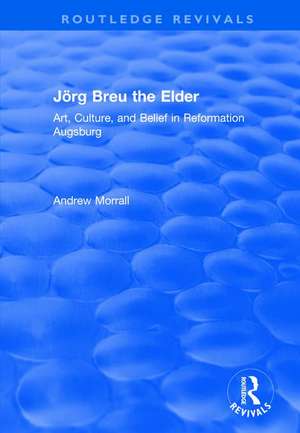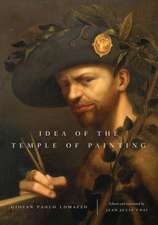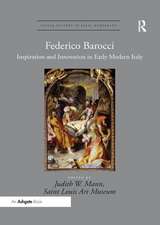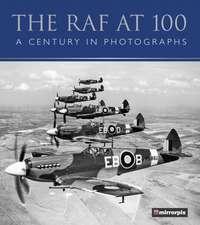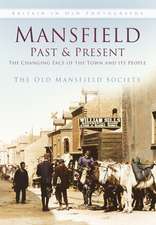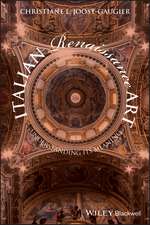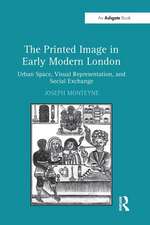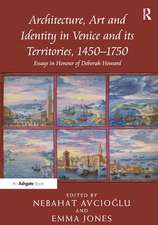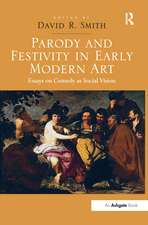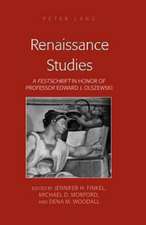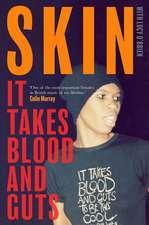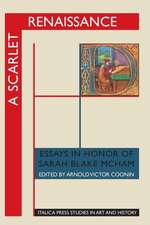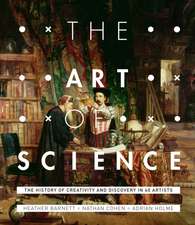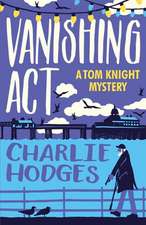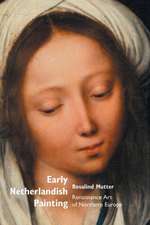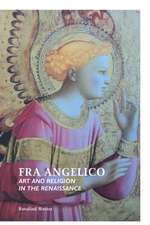Jörg Breu the Elder: Art, Culture, and Belief in Reformation Augsburg: Routledge Revivals
Autor Andrew Morrallen Limba Engleză Hardback – 26 sep 2017
Din seria Routledge Revivals
- 9%
 Preț: 801.69 lei
Preț: 801.69 lei - 8%
 Preț: 432.15 lei
Preț: 432.15 lei -
 Preț: 153.81 lei
Preț: 153.81 lei -
 Preț: 230.80 lei
Preț: 230.80 lei -
 Preț: 294.72 lei
Preț: 294.72 lei -
 Preț: 258.72 lei
Preț: 258.72 lei - 9%
 Preț: 764.34 lei
Preț: 764.34 lei - 9%
 Preț: 903.41 lei
Preț: 903.41 lei -
 Preț: 296.10 lei
Preț: 296.10 lei -
 Preț: 342.36 lei
Preț: 342.36 lei - 9%
 Preț: 606.35 lei
Preț: 606.35 lei -
 Preț: 317.54 lei
Preț: 317.54 lei - 9%
 Preț: 764.28 lei
Preț: 764.28 lei -
 Preț: 257.00 lei
Preț: 257.00 lei -
 Preț: 238.40 lei
Preț: 238.40 lei -
 Preț: 259.47 lei
Preț: 259.47 lei - 9%
 Preț: 903.80 lei
Preț: 903.80 lei -
 Preț: 326.26 lei
Preț: 326.26 lei -
 Preț: 258.66 lei
Preț: 258.66 lei -
 Preț: 294.97 lei
Preț: 294.97 lei -
 Preț: 308.89 lei
Preț: 308.89 lei -
 Preț: 199.85 lei
Preț: 199.85 lei -
 Preț: 347.49 lei
Preț: 347.49 lei -
 Preț: 295.04 lei
Preț: 295.04 lei -
 Preț: 389.39 lei
Preț: 389.39 lei -
 Preț: 257.00 lei
Preț: 257.00 lei -
 Preț: 343.21 lei
Preț: 343.21 lei - 9%
 Preț: 640.90 lei
Preț: 640.90 lei - 9%
 Preț: 619.48 lei
Preț: 619.48 lei -
 Preț: 228.88 lei
Preț: 228.88 lei -
 Preț: 257.67 lei
Preț: 257.67 lei -
 Preț: 245.10 lei
Preț: 245.10 lei -
 Preț: 258.52 lei
Preț: 258.52 lei -
 Preț: 258.72 lei
Preț: 258.72 lei -
 Preț: 368.93 lei
Preț: 368.93 lei -
 Preț: 246.37 lei
Preț: 246.37 lei - 9%
 Preț: 832.07 lei
Preț: 832.07 lei -
 Preț: 258.66 lei
Preț: 258.66 lei -
 Preț: 286.98 lei
Preț: 286.98 lei - 18%
 Preț: 695.85 lei
Preț: 695.85 lei - 9%
 Preț: 934.94 lei
Preț: 934.94 lei - 5%
 Preț: 231.22 lei
Preț: 231.22 lei -
 Preț: 267.15 lei
Preț: 267.15 lei -
 Preț: 200.66 lei
Preț: 200.66 lei - 9%
 Preț: 638.61 lei
Preț: 638.61 lei -
 Preț: 259.68 lei
Preț: 259.68 lei - 9%
 Preț: 1038.45 lei
Preț: 1038.45 lei -
 Preț: 389.43 lei
Preț: 389.43 lei -
 Preț: 302.13 lei
Preț: 302.13 lei -
 Preț: 302.25 lei
Preț: 302.25 lei
Preț: 741.36 lei
Preț vechi: 992.66 lei
-25% Nou
Puncte Express: 1112
Preț estimativ în valută:
141.86€ • 148.51$ • 117.38£
141.86€ • 148.51$ • 117.38£
Carte tipărită la comandă
Livrare economică 07-21 aprilie
Preluare comenzi: 021 569.72.76
Specificații
ISBN-13: 9781138723245
ISBN-10: 113872324X
Pagini: 308
Dimensiuni: 174 x 246 mm
Greutate: 0.73 kg
Ediția:1
Editura: Taylor & Francis
Colecția Routledge
Seria Routledge Revivals
Locul publicării:Oxford, United Kingdom
ISBN-10: 113872324X
Pagini: 308
Dimensiuni: 174 x 246 mm
Greutate: 0.73 kg
Ediția:1
Editura: Taylor & Francis
Colecția Routledge
Seria Routledge Revivals
Locul publicării:Oxford, United Kingdom
Cuprins
Contents: Introduction: The Artist's Smile; 1: The Artist and His Workshop, c.1498-c.1517; Beginnings: The Austrian altarpieces; Economic background; Work in fresco; Panel painting: style and patronage; The artist as designer; Woodcuts; Designs for sculpture; Designs for glass; The drawings for the Months of the Year; Painters, glaziers and glass-paintings; 2: The Turn Towards Italy; Augsburg and the South; The Aufhausen Madonna; The Prayerbook of Maximilian I; Image and verse; The frescoes for the Augsburg town hall; The organ shutters of the Fugger Chapel in St Anna, Augsburg; The large wings; The trip to Italy; The small organ shutters; Style and dating; 3: Breu and the Reformation;The course of the Reformation in Augsburg; The Reformation and the arts; The Chronicle; Breu's Protestantism: A case study in Reformation piety; Painting in the Reformation; Woodcut illustrations; The soldier as Unrepentant Thief; Garlic, the Jews and 'the sleep of ignorance': St Thomas as exemplar of faith: humanist responses to the Reformation and the origins of the Emblem; the St Ursula alterpiece: iconoclasm and the image question; Breu and Zwinglianism; The Holy Works of Mercy; 4: The Deutsch and the Welsch. Neo-Classicism and its Uses; Conclusion; Appendix. Hand-list of surviving or recorded designs for glass and glass-roundel designs; Index.
Notă biografică
Andrew Morrall is Professor and Chair of Academic Programmes Bard Graduate Center for Studies in the Decorative Arts, New York, USA
Recenzii
’..this book offers a new and promising approach to this period of German art as a whole. It is also a model of clear and balanced exposition, and very engagingly written.’ Caroline van Eck, Vrije Universiteit, Amsterdam. '...offers a fascinating case study.' The Art Newspaper 'Morrall...thrusts us into a tumultuous sixteenth-century Germany, where one ideology is directly confronting another, with powerful implications for the visual arts. Morrall has focused on a fascinating topic...' The New Republic 'One of the lasting strengths of this book is that it provides critical tools for evaluating the choices or rejections of styles without reduction to empty terms of periodization...For Morrall, the prevailing interpretation of the German Renaissance aesthetic of perceptual realism was only one choice among many for an artist like Breu. Morrall demonstrates that Breu tended to "retreat" from perceptual realism and to embrace an artificial and distancing manner that could fit the demands of Reformation -era secular themes and a growing anxiety about idolatry. This interpretation of style as holding rhetorical force will no doubt enrich treatments of other artists of the era, such as Burgkmair and the Holbeins, or even those working outside the scope of the Renaissance.' CAA Reviews 'Morrall's account of Breu's career provides a fascinating case study of artistic production in an age of rapid social and cultural change... this book will [...] be of interest to print specialists... this volume is a welcome addition to existing scholarship on German art of the Renaissance period, a much-neglected field.' Bridget Heal, Print Quarterly 'Andrew Morrall's work on Jörg Breu the Elder of Augsburg (ca. 1480-1536/37) makes many important contributions to the field of Renaissance art History. Morrall skillfully uses the career and production of Breu as a lens through which to focus on vital issues at the hear of art historical interpretation. In order to do this, Mo
Descriere
This title was first published in 2002: Jörg Breu belonged to the generation of German Renaissance artists that included Dürer, Cranach, Grünewald, Altdorfer, and, in his own city of Augsburg, Hans Burgkmair the Elder. His art registered the early reception of Italian art in Germany and spanned the dramatic years of the Reformation in Augsburg, when the city was riven with social and religious tensions. Uniquely, for a German artist, Breu left a diary chronicling his reaction to the massive social and cultural forces that engulfed him, including his own conversion to the Protestant cause.
